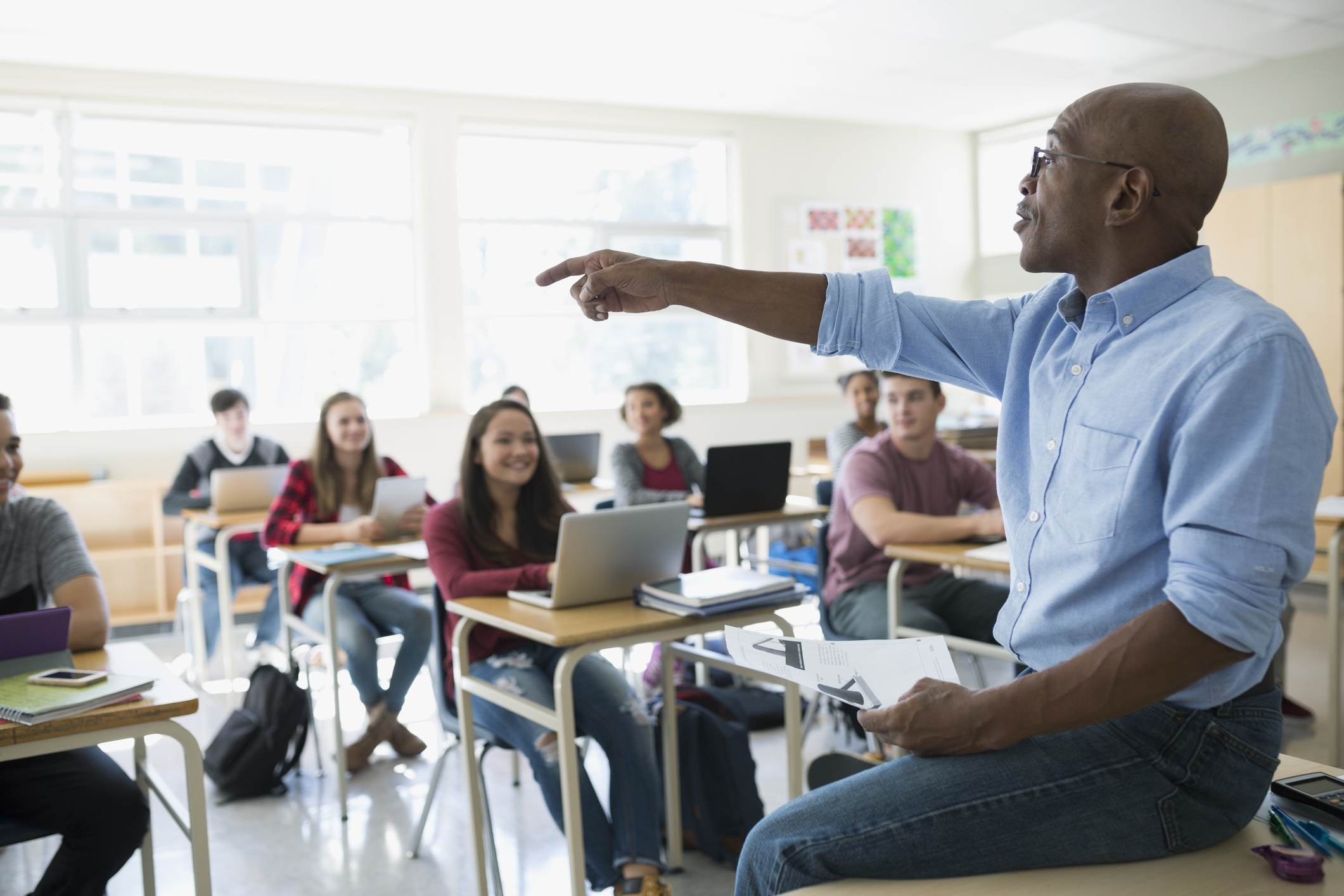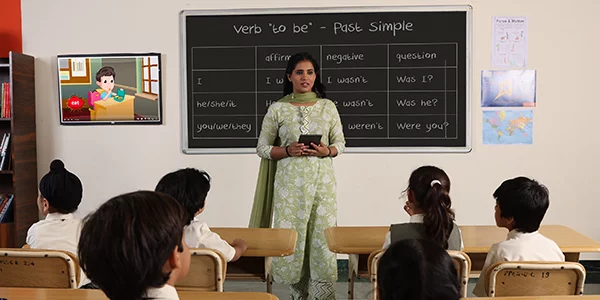Effective Primary Science Tuition Singapore for Better Exam Results
Effective Primary Science Tuition Singapore for Better Exam Results
Blog Article
Discovering the Various Training Strategies in Main Science Education And Learning Today
The landscape of main science education is developing, with different teaching approaches gaining prominence in contemporary class. Inquiry-based understanding, hands-on experiments, and the combination of innovation are redefining exactly how teachers involve young minds. Furthermore, collective techniques and separated direction are being employed to deal with the varied demands of trainees, boosting both interaction and understanding. As we analyze these methodologies, concerns develop concerning their effectiveness and the ramifications for future academic practices. What might these changes in method mean for the future generation of students?
Inquiry-Based Discovering
Inquiry-Based Knowing (IBL) is a pedagogical method that motivates pupils to explore scientific principles via questioning, investigation, and hands-on trial and error. This technique emphasizes the role of trainees as active participants in their discovering, advertising crucial thinking and analytic skills. By engaging with real-world concerns, students end up being determined and curious, which enhances their understanding of scientific principles.
In IBL, teachers serve as facilitators, assisting trainees as they browse their queries rather than delivering info directly. This student-centered technique permits differentiation, fitting numerous learning speeds and designs. Pupils develop abilities in creating hypotheses, developing experiments, and assessing data, which are critical for scientific literacy.
Furthermore, IBL cultivates collaboration amongst pupils, motivating them to share findings and ideas. This collective questions promotes social skills and a sense of area within the class. The procedure of questions motivates strength, as students learn to welcome failure as a stepping rock toward understanding.
Hands-On Experiments
Hands-on experiments are an important component of efficient science education and learning, complementing the concepts of inquiry-based discovering. These experiments allow pupils to engage straight with scientific principles, promoting a much deeper understanding with experiential learning. By controling materials and observing end results, young learners can grasp abstract concepts in substantial methods.
Such activities promote essential reasoning and problem-solving abilities, as trainees assume end results, conduct experiments, and assess results. This procedure motivates them to ask inquiries, refine their understanding, and create a scientific mindset. In addition, hands-on experiments can be tailored to diverse understanding styles, making certain that all trainees have the possibility to involve meaningfully with the material.
In addition, hands-on experiments commonly encourage partnership among peers, advertising synergy and interaction abilities. Operating in groups allows trainees to share concepts, review findings, and discover from each other, which improves their general instructional experience.
Including hands-on experiments right into the key science curriculum not just enriches the learning environment yet additionally grows a long-lasting passion in scientific research. By proactively taking part in their education and learning, trainees are more probable to establish an interest for scientific inquiry that expands past the classroom.

Technology Assimilation
Integrating technology into main scientific research education and learning has actually ended up being significantly essential in promoting student interaction and boosting learning outcomes. The use of electronic devices, such as interactive simulations, online labs, and educational software application, offers students with possibilities to check out scientific concepts in innovative means. These resources assist in a deeper understanding of complex subjects by enabling students to picture and control variables that would certainly be unwise in a conventional classroom setup.
Furthermore, technology assimilation motivates personalized learning experiences. Pupils can advance at their own pace, revisiting tough principles with multimedia resources, which satisfy various discovering styles. This flexibility not only sustains individual development however likewise cultivates a feeling of autonomy in students.
Furthermore, innovation works as a bridge to real-world scientific research, connecting pupils with present research study and professional payments. Access to on-line databases and clinical journals broadens pupils' viewpoints on scientific questions and promotes important believing skills.
Collaborative Understanding
Collective knowing plays an important function in primary science education and learning by promoting teamwork and interaction skills among trainees. This strategy urges students to collaborate, share understanding, and take part in analytic, which boosts their understanding of clinical principles. By participating in group activities, trainees discover to express their concepts, pay attention to varied point of views, and work out remedies, all of which are necessary abilities in both real-world and scholastic contexts.
:max_bytes(150000):strip_icc()/GettyImages-595348697-5b356e9ac9e77c00372d12a8.jpg)
Study suggests that joint knowing can bring about boosted inspiration and interaction in scientific research subjects, as students discover satisfaction in shared experiences (primary science tuition Singapore). Furthermore, this strategy prepares students for future collective undertakings, equipping them with the skills needed for effective teamwork in higher education and learning and specialist environments. Eventually, accepting joint learning in main science education and learning can considerably enhance weblink the understanding experience and advertise a deeper understanding of scientific inquiry
Separated Guideline

Differentiated instruction can manifest in various methods, such as differing the web content, procedures, or items of knowing. For circumstances, instructors might utilize tiered jobs that provide varying levels of complexity, allowing trainees to work at their respective readiness degrees. In addition, versatile grouping techniques can help with partnership among trainees with different capacities, promoting peer knowing.
Analysis plays a vital function in this technique, as it educates direction and assists instructors comprehend each student's unique needs. Developmental analyses, such as observations and quizzes, can direct educators in changing their strategies to improve learning results. primary science tuition Singapore. Inevitably, by carrying out distinguished instruction in primary scientific research education, teachers can grow a more equitable and reliable learning atmosphere, equipping all students to reach their complete potential in understanding clinical phenomena
Final Thought
In recap, the diverse training approaches in main science education and learning, including inquiry-based understanding, hands-on experiments, innovation integration, joint discovering, and separated instruction, jointly add to an extra efficient discovering environment. These approaches advertise critical thinking, analytic abilities, and a much deeper understanding of clinical ideas. By executing these strategies, teachers can produce appealing and supportive class that resolve the different demands of trainees, ultimately fostering a long-lasting interest in science and improving scholastic achievement.
Inquiry-Based Discovering (IBL) is an instructional approach that motivates pupils to discover scientific principles via questioning, investigation, and hands-on trial and error.Joint knowing plays an important duty in key scientific research education by cultivating team effort and communication abilities amongst trainees.Research study indicates that joint discovering can lead to enhanced inspiration and interaction in science topics, as trainees find satisfaction in shared experiences.In cultivating an inclusive learning setting, set apart direction emerges as a key approach to fit the review diverse demands and capacities of trainees in primary scientific research education and learning. Inevitably, by carrying out separated instruction in key scientific research education and learning, teachers can cultivate an extra reliable and equitable knowing atmosphere, empowering all pupils to reach their full potential in understanding scientific sensations.
Report this page